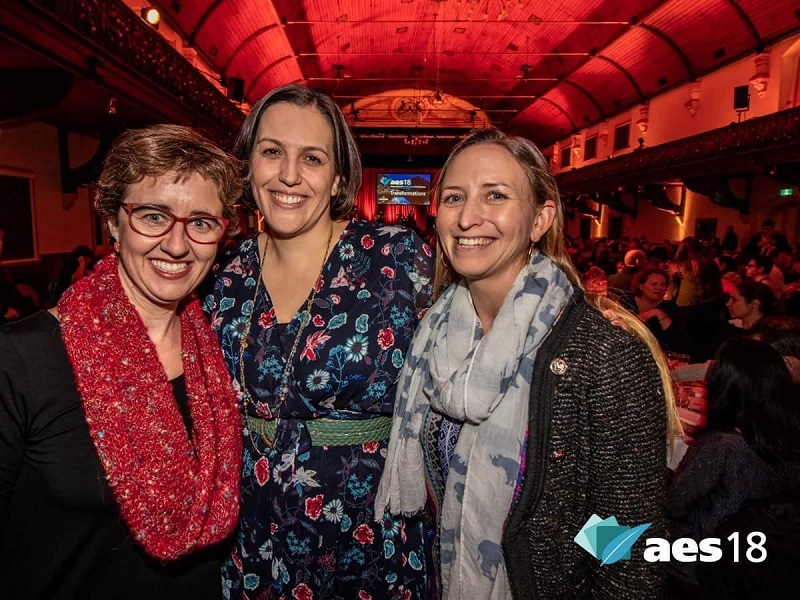Welcome to the AES Blog
Evaluation literacy in NGOs
by Alicia McCoy, Alison Rogers, Leanne Kelly
Evaluation in NGOs in Australia has evolved at a fast pace. Ten years ago, the evaluation landscape in the non-profit sector in Australia looked very different than it does today. There was less evaluation occurring, very few organisations had internal evaluation functions, and funders were often satisfied with output focused reports.
However, in what has now become a rather volatile socio-political environment, organisations are under increasing demand to measure their outcomes; even their social impact. As a result, more and more organisations are grappling with how to engage with evaluation meaningfully in a way that makes sense for the context in which they work. Organisations’ ability to do this ranges from limited to sophisticated, depending on a variety of factors including financial and human resources, evaluation knowledge and skills, and motivation. Where they exist, internal evaluators in NGOs are required to navigate this multifaceted issue on daily basis.
It is important that NGO evaluators connect, share, debrief, and celebrate their work in this area. The evaluation profession as a whole deals with issues of complexity in various degrees. The NGO context comes with its particular set of challenges and can be incredibly complex. It is very useful to discuss and navigate this complexity with those “in the know”. For not only are these individuals practising the complex discipline of evaluation, they are doing so in an organisational environment where they must continually consider factors such as culture, leadership, long-term professional relationships, and complicated systems and processes. These factors can “make or break” evaluation efforts and building an enabling environment for evaluation to flourish is indeed a matter of organisational change to bring others along on the journey. It is a challenging, fascinating and at times frustrating context to work in.
One factor that internal evaluators in NGOs must pay close attention to is how to promote evaluation among colleagues. This involves understanding the spectrum of evaluation literacy that exists in their organisation and working with this. Internal evaluators must be able to engage with colleagues who have a good understanding of evaluation, as well as those who don’t. They also need to be able to ‘speak to’ those who have a positive attitude towards evaluation, those that don’t, and those who might understand the importance of evaluation but find it anxiety-provoking.
As internal evaluators working in diverse NGOs we have found that motivating and enabling others to access, understand and use evaluation information is an important part of our roles. This can include engaging people in discussions about what evaluation means to them, how it relates to organisational achievements and sharing knowledge about evaluation. We have found that understanding social connections and how people work together is important for building evaluation literacy - making evaluation more appropriate, understandable and accessible. Internal evaluators need to cooperate with teams and have high level interpersonal skills to adapt and tailor information about evaluation to the local conditions.
The recent AES conference provided us with a great opportunity to discuss this topic with our colleagues across the NGO sector. Interesting ideas were shared about ways that internal evaluators can promote evaluation and support colleagues to access, understand and use evaluation. Some key highlights include:
- Collaboratively develop a plan to link individuals to the success of the group or common goal. This could include brainstorming to discover expectations, value and issues.
- Use a system to manage information and hold individuals accountable for their contribution. A joint calendar with targeted reminders could be an example.
- Create opportunities for engaging and providing encouragement. This could mean using every opportunity to promote evaluation.
- Tailor your communication style appropriately for multiple audiences. Knowing your audience and adapting information to make it meaningful is essential.
- Incorporate opportunities for reflection to consider how well the group is functioning. This could be as simples a routinely asking for feedback on the process.
Look out for our article in the first edition of the Canadian Journal of Evaluation in 2019 where we go into more detail on the topic of evaluation literacy in NGOs. (Rogers, A., Kelly, L., & McCoy, A. (2019) Evaluation Literacy: Perspectives of internal evaluators in non-government organisations. Canadian Journal of Program Evaluation. In Press.)
A Slack Workspace (On the inside looking out – Internal and NGO evaluators community of practice) has been created to keep the NGO evaluation conversation alive. Anyone working in an internal evaluation role in an NGO is welcome to join at https://invaluate.slack.com/
If you are interested in connecting with us to further discuss evaluation in NGOs, please contact Alicia at

Alicia McCoy is Head of Research and Evaluation at Beyond Blue and has recently completed her PhD at The University of Melbourne.
Alison Rogers is the Strategic and Innovation Advisor with The Fred Hollows Foundation’s Indigenous Australia Program and a PhD candidate with the Centre for Program Evaluation at The University of Melbourne.
Leanne Kelly is the Research and Development Coordinator at Windermere Child and Family Services and is undertaking a PhD through scholarship with the Alfred Deakin Institute at Deakin University.
We acknowledge the Australian Aboriginal and Torres Strait Islander peoples of this nation. We acknowledge the Traditional Custodians of the lands in which we conduct our business. We pay our respects to ancestors and Elders, past and present. We are committed to honouring Australian Aboriginal and Torres Strait Islander peoples’ unique cultural and spiritual relationships to the land, waters and seas and their rich contribution to society.

